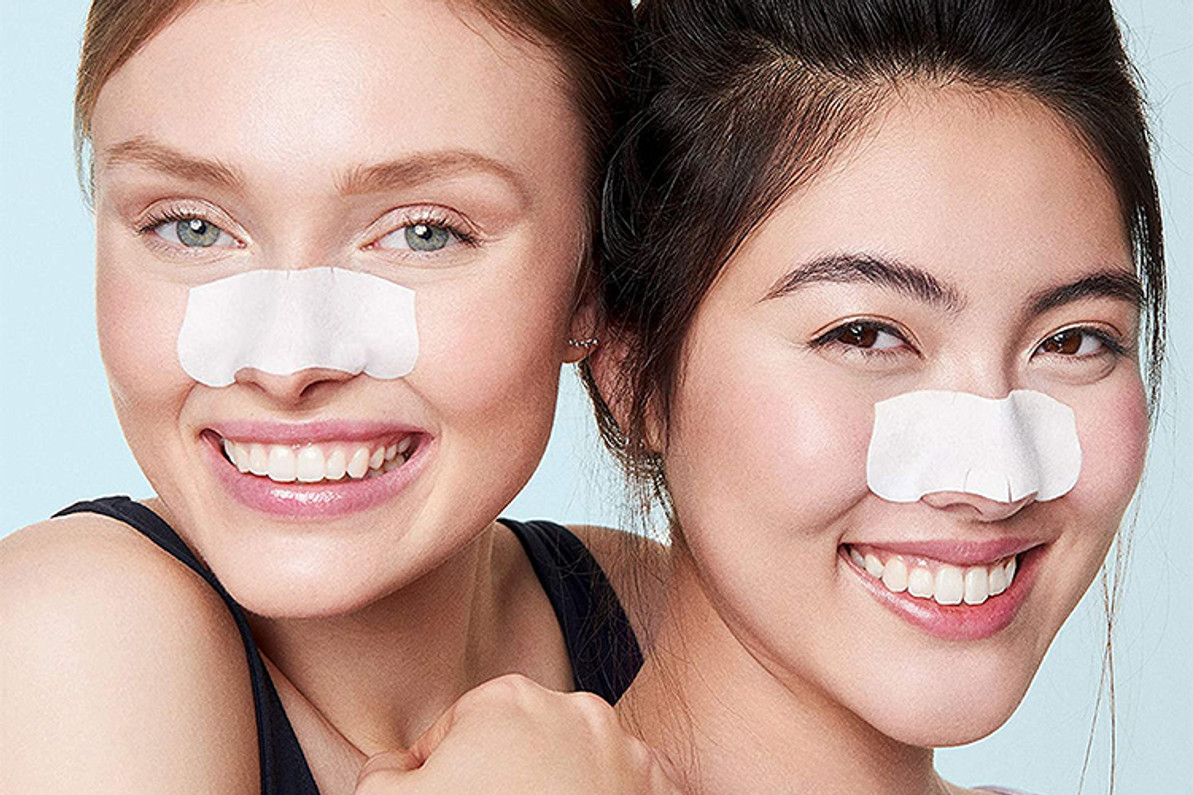The 5 Best Home Remedies to Get Rid of Blackheads
Have you ever had blackheads that just won't go away? It's time to try a blackhead treatment that works. There are probably many ways to treat blackheads. This article will provide you with 5 blackhead remedies, all of which are easy and effective.
What Are Blackheads?
Some may think that blackheads and pimples are the same things. They are both types of acne blemishes but they are developed and treated differently. Blackheads may appear as small bumps that look like dark spots. Blackheads are less likely to become inflamed. Pimples on the other hand are small, painful, discolored bumps with a thick, white-yellow fluid (pus) at the tip. There is also inflammation associated with pimples making them painful.
What Causes Blackheads?
Blackheads are caused due to active sebaceous glands that cause excess oil production and dirt that gets clogged in the pores of hair follicles/sebaceous gland. This creates a buildup of bacteria and oil which results in black or whiteheads appearing on your face. There are also hormonal factors at play when it comes to blackheads, as they can be exacerbated by stress and hormonal changes in the body.
5 Different Ways To Treat Blackheads
Cleanse with Salicylic Acid
Salicylic acid is an over-the-counter product that can be effective in treating and removing blackheads without dryness like benzoyl peroxide. Azelaic acid is sometimes used in conjunction with exfoliating products because of its kills acne-causing bacteria. Remember that you should begin slowly and modestly—for example, by applying it only once a day—to avoid any irritation or dryness if you have rosacea or eczema.
Gently Exfoliate with AHAs and BHAs to Remove Blackhead
Consider using alpha hydroxy acid or beta hydroxy acid as these ingredients will help to exfoliate the skin and remove blackheads and whiteheads. They should be used only every other day, even on oily skin, in order to not dry out the pores and cause more comedones to occur. Exfoliating results in a more rapid turnover of the skin making it less likely that makeup or dead skin cells will get trapped and clog pores to reduce blackheads.
Glycolic acid is the most common blackhead remover, and it is often used in blackhead removal products. It helps loosen up the buildup of dead skin cells inside your hair follicles to prevent clogged pores and prevent blackheads. Glycolic acid not only removes the top layers of the skin, but it also penetrates deep into the pores to dissolve the oil that causes blackheads. It is often used in combination with other products for treatments in clearing and preventing new acne from forming.
Remove Blackheads with a Comedone Extractor Tool
A blackhead removal tool also known as a comedone extractor has been my favorite zit-zapping tool since then. It's essentially a four-inch metal rod with wire loops—one small and thin, the other long and thick–at each end. The tool is not applied directly to the acne but instead surrounds the pore's opening with one of the loops and softly presses the surface to extrude dirt and sebum. This tool is often used by a healthcare professional, a dermatologist, or an aesthetician to remove deep blackheads.
Mix Baking Soda and Water
To treat your blackheads, combine two tablespoons of baking soda and two tablespoons of water to form a paste. Massage the paste onto your face and then wash it off with warm water. After that, moisturize as usual. Use this solution only twice or three times per week to avoid drying your skin. After a few weeks, you will notice blackheads coming to the surface of your skin and eventually vanishing.
Use a Pore Strip
Pore strips are blackhead removers that you can use without having to visit the salon. The extraction of blackheads will be removed with each strip, revealing smooth skin underneath.
First, cleanse your face and dry it thoroughly. Then place the pore strip over any blackheads on your nose or chin (whichever area is most affected).
Make sure the strip is firmly pressed down so it will stick to your blackheads.
Leave the strip on for about 15-20 minutes, then remove the pore strip and gently scrub away any remaining blackheads or dead skin cells with a washcloth or facial brush.
Everyone has different skin types so the different methods of blackhead removal may vary in effectiveness for each person.
Over-the-counter products are often preferred over prescription medication to treat acne. For more severe cases of blackheads, seek professional medical advice from a dermatologist for diagnosis to prevent making the problem worse. Sometimes prescription medications are needed when closed comedones occur and when the blemish cannot be treated at home.
Recent Posts
-
Understanding the Top Side Effects of Retinol: Pros and Cons
Learning about the Side Effects of Retinol: Pros and Cons Brief Overview of RetinolThis month w …Jul 25th 2024 -
Transform Your Skin with Retinol: Before and After Results
Transform Your Skin with Retinol: Before and After Results Retinol, a potent retinoid, is renown …Jul 23rd 2024 -
Beginner's Guide to Retinol Cream and Serum: What Does it Do?
Beginner's Guide to Retinol Cream and Serum: What Does it Do?Retinol has become a buzzword in the be …Jul 18th 2024





